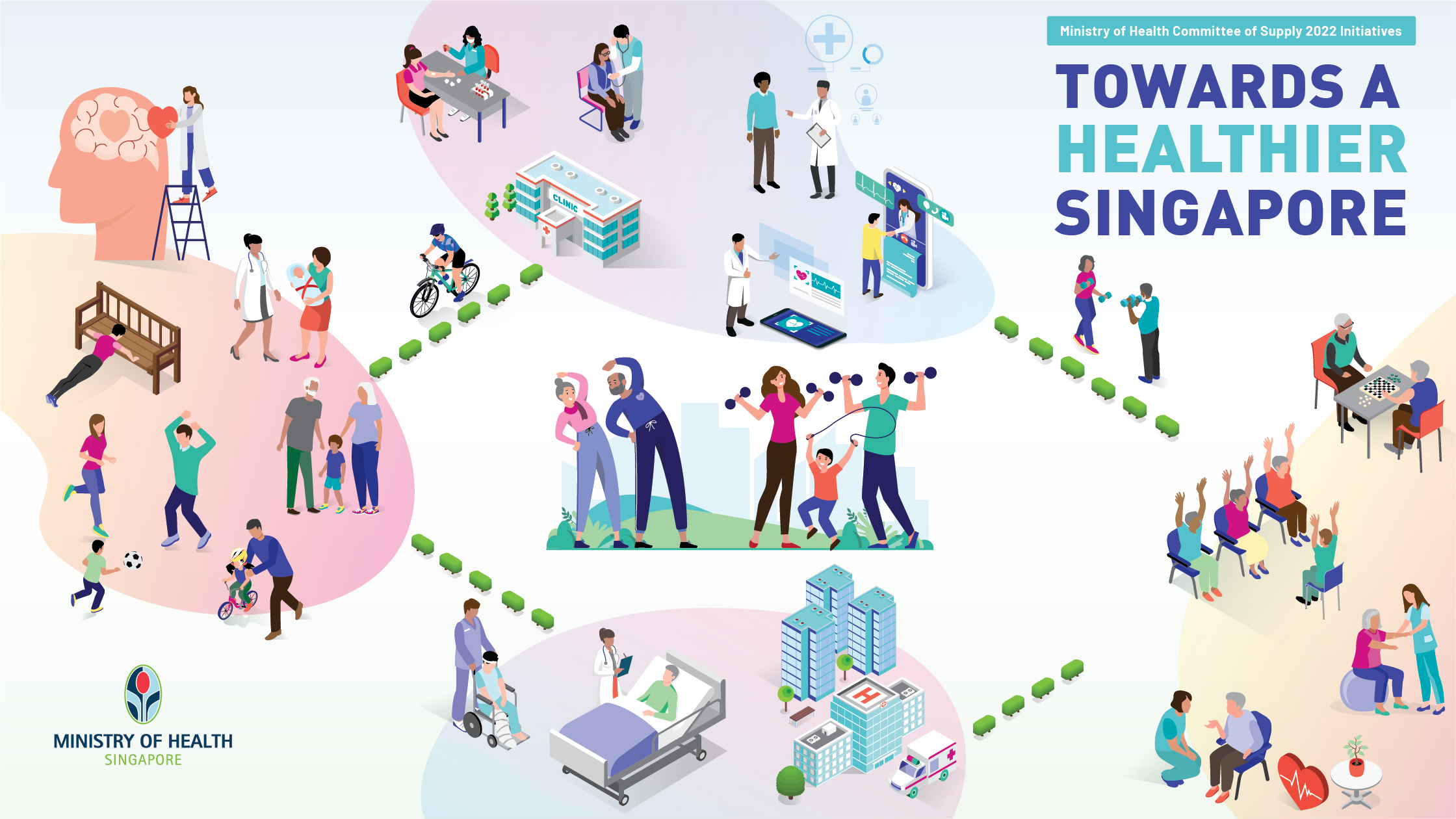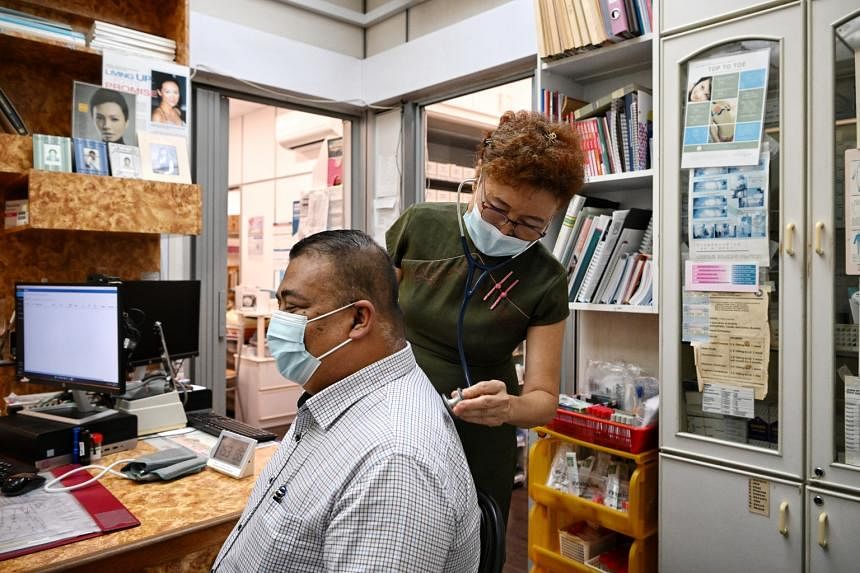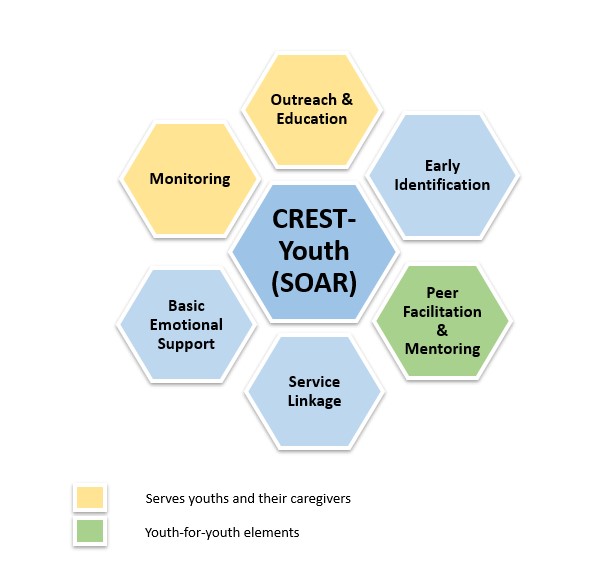The mental health landscape in Singapore is set for a significant transformation. With a projected 40% increase in public sector psychologists by 2030, the government is taking an unprecedented step towards boosting mental health services.
But what does this mean for families? And how will this impact the support available to children and adults facing mental health challenges?
A Forward-Thinking Strategy

Source: Ministry of Health
The Ministry of Health has announced its plans to increase the pool of mental health professionals in the public sector.
This move aims not only to meet the growing demand for mental health services but also to provide a safety net for people with severe and chronic mental health conditions.
With more than 130,000 frontline personnel and volunteers set to receive training by 2030, families can expect a surge in community-based mental health support.
This is a significant step forward in ensuring that those in need receive timely care.
More Than Just Numbers
You might be wondering, “Is increasing the number of psychiatrists and psychologists enough?” The answer is no.
While an increase in professionals is important, it’s also vital to ensure these professionals are equipped to handle the complexities of mental health needs.
Along with boosting the number of professionals, the government is prioritizing a tiered care model. This model organizes mental health services according to the severity of an individual’s needs, ensuring patients receive appropriate care.
This means psychiatrists and psychologists can focus on those with complex needs, while other mental health professionals, such as counsellors, can provide care in the community.
Training Frontline Staff and Volunteers
Beyond the increase in professionals, a significant part of this strategy involves training frontline staff and volunteers. These individuals play a critical role in identifying mental health needs and providing psychological first aid.
With more than 130,000 people set to receive training by 2030, the support network for individuals with mental health needs will be broader than ever before.
Expanding Access to Mental Health Services
The government is also committed to making mental health services more accessible. By 2030, mental health services will be available in all polyclinics and 1,350 HealthierSG GP clinics.

Source: The Straits Times
This ensures that more patients with common mental health conditions, such as anxiety and depression, can access these services in primary care settings.
Rising Need for Youth Mental Health Support

Source: RedWire Times Singapore
The 2022 National Population Health Survey reports that youths between the ages of 18 and 29 form the largest proportion of individuals with poor mental health in Singapore.
Recognizing this alarming trend, authorities are introducing new measures to support these youths, especially those at risk of suicide or severe self-harm.
Transforming Youth Mental Health Care
The Intermediate Residential Facility for Youths
This proposed solution is a beacon of hope for youths, as explained by Senior Parliamentary Secretary for Health Rahayu Mahzam.
“Not all youths who present with suicidal behaviour suffer from mental health conditions,” she said, “Instead, they may have experienced social stressors such as having difficulties coping with school work and being bullied.”
Specifically, designed for those aged 10 to 19, the facility’s mission is to provide a nurturing and safe environment for recovery.
Moreover, going beyond just catering to youths with mental health conditions, it also seeks to aid those struggling with social stressors such as bullying and academic pressure.
Additionally, with a dedicated team of psychiatrists, psychologists, social workers, nurses, and live-in care staff on standby, the facility offers a broad spectrum of services.
These services range from identifying the needs of youths in crisis to providing supportive medical attention and facilitating transitions with help from community partners.
Expanding Mental Health Teams by 2030
Singapore has set an ambitious goal to increase the number of community mental health teams – CREST-Youth – and youth-integrated teams that cater to the mental health needs of youths.

Source: Lakeside
Having already supported thousands of youths and parents, these teams are poised to extend their reach to even more individuals in need.
‘Go-To Places’ for Mental Health Support
In a bid to simplify the often daunting process of seeking help, Singapore plans to launch first-stop touchpoints or “go-to places” for mental health support.
These locations will play a crucial role in identifying clients’ mental health needs and providing the appropriate service, be it immediate mental health support, intervention, or referrals.
Senior Parliamentary Secretary for Social and Family Development, Eric Chua, underscored the significance of these touchpoints, acknowledging the overwhelming nature of seeking help.
“This is a key issue for us, as there remains a treatment gap – many who need help are not getting the help that they need, and far too many get help far later than they should,” he said.
His hope is that these new measures will bridge the treatment gap and inspire more individuals to seek help sooner.
A Brighter Future for Mental Health Care

Source: iStock
Singapore is committing to enhance mental health services, marking a new era of support for families.
This extensive strategy not only increases the number of professionals but also revolutionizes the delivery of mental health services, making them more accessible and tailored to individual needs.
So, what does this mean for you as a parent? It means that you can look forward to more comprehensive and accessible support for your family’s mental health needs. It reassures you that help is at hand, whenever and wherever you might need it.
It’s time we put mental health at the forefront of our healthcare system, right? We think so too.
With these changes on the horizon, we can look forward to a future where we prioritize, understand, and effectively address mental health. Isn’t it encouraging to see Singapore take such a proactive stance on mental health?
As parents, caregivers, and community members, let’s rally behind these initiatives and look forward to a brighter future for mental health care in Singapore.
ALSO READ
Bridging the Gap: Expanding Polyclinics’ Mental Health Services for a Happier Tomorrow
Facility for Young People, More Doctors: Singapore Launches National Mental Health and Well-Being Strategy
More Parents Prioritise Children’s Mental Health Over Grades